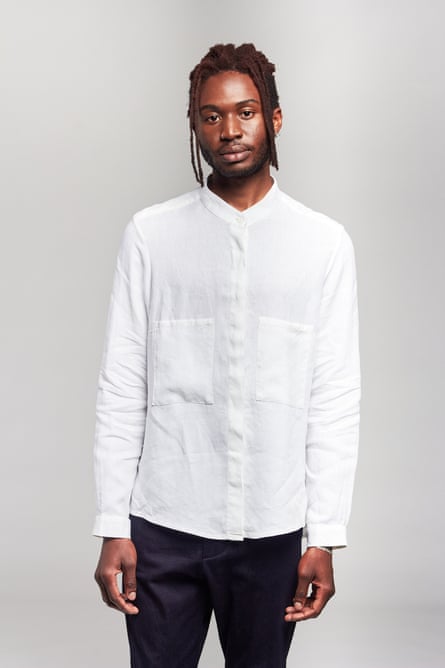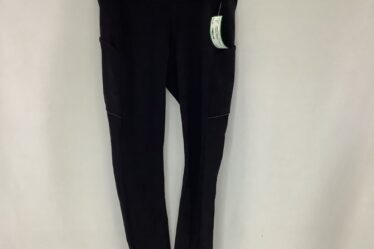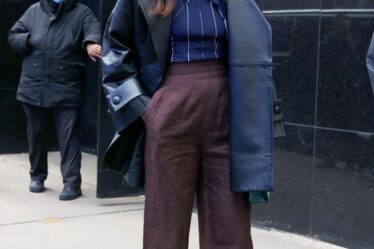
Much like the term “sustainable”, “regenerative” is increasingly used in vague ways in fashion marketing. For a garment to be truly regenerative, the raw materials must have been farmed without synthetic fertilisers or pesticides using techniques that restore the health of the soil, improve ecosystem functionality, water cycles and biodiversity.
A regenerative system provides better outcomes for the farmers and communities along the supply chain. But on a broader scale, regenerative agriculture has been described as integral to the future of fashion.
In the industry, the transition to regenerative fibre farming is only just getting under way, meaning regenerative fashion can be hard to find, and often, eye-wateringly expensive – an unfortunate reality of sustainable supply chains as they work to compete with fast-fashion business models. Here are some designers who already have regenerative garments in their collections.
Angel Chang
Made by indigenous artisans in the mountainous province of Guizhou in China, every garment produced by Angel Chang is regenerative. Her collection is made with native seed cotton that has been grown without chemicals and dyed with locally harvested indigo and gardenia.
Chang says her favourite piece “is literally called my favourite shirt”. The shirt is entirely handmade: the cotton is hand-spun into yarn then woven into fabric on a handloom, while the shirt is hand-stitched together.
Allow Instagram content?
This article includes content provided by Instagram. We ask for your permission before anything is loaded, as they may be using cookies and other technologies. To view this content, click ‘Allow and continue’.
“The cotton is unprocessed and unbleached – so the oil of the seed is retained on the fibre and keeps the fabric soft,” she says. “By strictly following the traditional processes [of the Miao and Dong ethnic minority grandmothers] we have created clothing with a nearly zero carbon footprint.”
A.BCH
Courtney Holm has worked extensively to produce truly low- or positive-impact clothing for her Melbourne-based label A.BCH. The brand’s linen shirt is made from 100% global organic textile standard certified linen, grown in France by a collective of organic-flax farmers. Flax generally grows with minimal irrigation and when farmed without chemical fertilisers and pesticides can be a carbon sink (that is, the flax plants can absorb more CO2 than they emit).
The first stage of processing the linen is done locally. Then the fibres are spun into yarn in Hungary and the yarns are sent to Belgium where they’re woven in a carbon neutral mill and whitened with low-impact oxygen whiteners. “Our Belgian linen supplier has been milling linen since 1864 and are recognised by The Masters of Linen,” says Holm.
From there, the linen is sent to A.BCH’s Melbourne factory where it’s cut and sown into the A.05 linen shirt, a mainstay of the label’s collection since its launch in 2017. While the shipment of fabric from Europe to Melbourne may seem like a lot of carbon emissions for a low-impact garment, most fabric in the industry travels much further to be converted from raw material to textile, and currently, there is no flax grown and processed in Australia.
Another Tomorrow
“We believe that impact starts at fibre,” the CEO of New York-based label Another Tomorrow, Vanessa Barboni Hallik, says. Take, for example, the tuxedo jacket, which forms part of her “daily uniform”.
The jacket is made with wool from a Responsible Wool Standard certified farm in Victoria, Australia. RWS certification requires farms to uphold the highest standards of animal welfare, so no mulesing is allowed. Farmers must use progressive land management techniques that protect soil health, biodiversity and native species.
“We have six farms now in our portfolio across Australia and New Zealand with deep commitments to biodiversity, carbon management and extremely stringent animal welfare standards,” says Barboni Hallik.
Maggie Marilyn
“We love merino for its temperature-regulating properties, its durability,” says Maggie Hewitt. The New Zealand designer is renowned for integrating the highest standards of sustainability and traceability into her merino knitwear label Maggie Marilyn. Her collection is made with ZQRX certified merino wool – that is, grown in New Zealand by producers whose farming techniques restore waterways, protect native species, offset carbon, and enhance local communities.
Allow Instagram content?
This article includes content provided by Instagram. We ask for your permission before anything is loaded, as they may be using cookies and other technologies. To view this content, click ‘Allow and continue’.
For Hewitt, the certification is notable for its ambition, and describes it as “a measure beyond sustainability, where the aim is continuous improvement – not a minimum standard.”
KitX
Kit Willow, the founder of Sydney based clothing label KitX, is a pioneer of sustainable fashion who describes hemp as a fibre of the future.
Hemp is an extremely resilient crop that grows with minimal irrigation and without synthetic pesticides or fertilisers. Because of its deep taproot system it can pull toxins from the soil, while research suggests industrial hemp can be twice as effective than trees in sequestering carbon.
In the KitX collection, the “hemp tee” is made from a hemp-cotton blend fabric knitted in Melbourne and constructed in Sydney using Citizen Wolf’s zero-waste production technology.
Mara Hoffman
While Mara Hoffman’s headquarters are in New York, all their wool knitwear and accessories are made using “climate beneficial” wool from Emigh ranch in northern California.
The wool is part of a wider regenerative agricultural program by not-for-profit Fibershed. Mara Hoffman’s vice-president of sustainability, produce and business strategy, Dana David, describes the main stakeholders of the initiative as scientists and community organisers who measure how fibre ecosystems adapt to and mitigate climate change. They are focused on giving ranchers and farmers the tools needed to practise carbon farming; and to put in place land stewardship efforts such as prescribed grazing, creating pollinator habitats, restoring creeks and a host of farming techniques known to support healthy soils.
“These practices aid in sequestering carbon back into the soil and vegetation, which removes carbon dioxide in the atmosphere, enriches the soil and helps to restore healthy ecosystems,” says David. The wool from these landscapes have been turned into a line of beautiful, soft knitwear for Mara Hoffman’s collection.
Joslin
The creative director of Melbourne-based label Joslin, Elinor McInnes, is renowned for her love of linen. So much so, Joslin only works with suppliers and textile mills that have received European Flax certification. This ensures a commitment to farming that respects the environment and commits to zero irrigation, non-GMO seed and low waste. She says “[the] linen is a renewable resource, grown from rainwater, that can be produced without damaging the environment.”
From the field to the fibre, the production of Joslin’s linen is fully traceable. The combed flax is exported from Europe to a mill in Jiangsu, China where it is spun and woven into batiste cloth.



